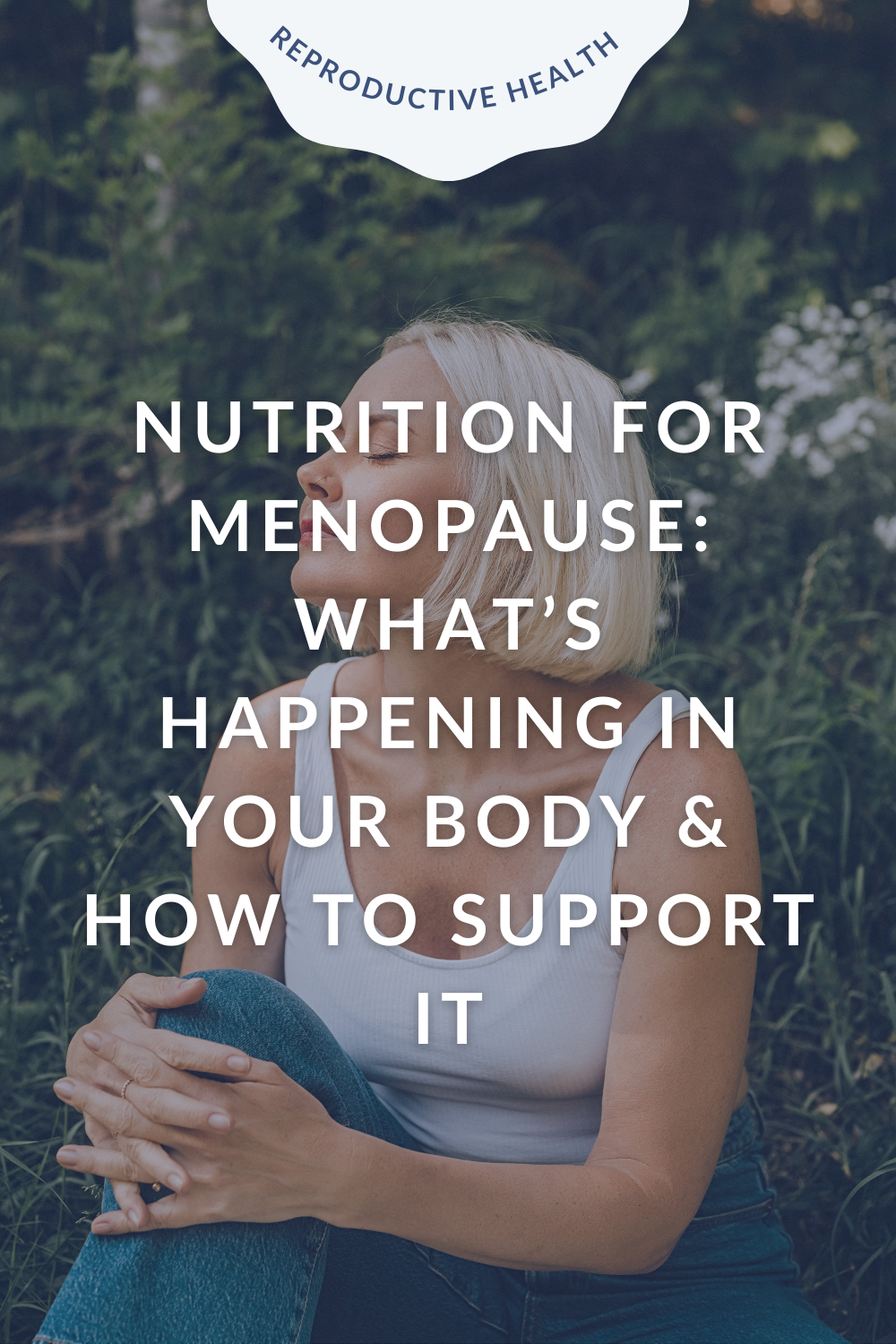Carbs and PCOS: 3 Mistakes to Avoid (and What to Do Instead)
If you live with PCOS, chances are you’ve been told (or Googled) that carbs are the enemy. Maybe you’ve heard “cut carbs to lose weight” or “go low-carb if you have PCOS.”
But here’s the truth: carbohydrates are not the villain. In fact, cutting them out altogether often leads to exhaustion, cravings, mood swings, worsened symptoms and metabolic health. The key isn’t about eliminating carbs - it’s about understanding how to eat them in a way that supports your hormones, energy and long-term health.
In this post, I’ll break down the top three mistakes I see people with PCOS making when it comes to carbs, and what you can do instead. These are strategies I teach inside the PCOS Recovery Program
Mistake #1: Focusing on Carb Quantity Instead of Quality
It’s easy to get caught up in the numbers - counting grams of carbs and trying to stay under a certain amount. But this misses the bigger picture.
One of my clients used to cycle between very low-carb (30-40g/day) and moderate carb intake. She felt constantly fatigued, her cravings were uncontrollable, and her continuous glucose monitor showed huge blood sugar swings. Why? Because the carbs she was eating were mostly simple, ultra-processed options that spiked her blood sugar quickly.
What made the difference? Shifting the focus to fibre-rich, nutrient-dense carbs - like oats, buckwheat, lentils, beans and starchy vegetables. These provide steady energy, essential micronutrients, and help keep blood sugar stable.
Instead of cutting carbs, add slower-digesting carbs. Swap white pasta for soba noodles, add lentils into your rice, or enjoy fruit with your breakfast. Nutrition by addition is far more effective than restriction.
Mistake #2: Ignoring Carbohydrate Timing
Many people with PCOS skip breakfast or eat very little during the day - then find themselves ravenous at dinner. This leads to big carb-heavy meals all at once, blood sugar crashes and intense cravings afterward.
Here’s why: when carbs are eaten in large amounts at once, blood sugar spikes rapidly. The body pumps out extra insulin, and for those with insulin resistance (up to 70% of people with PCOS), this cycle can worsen symptoms.
A better approach? Distribute carbs evenly throughout the day.
Add fruit or whole-grain toast to your morning eggs
Include sweet potato, beans, or quinoa with your lunch salad
Pair carbs with protein and fat for a balanced release of energy
This helps maintain stable blood sugar, improves insulin sensitivity, and keeps cravings manageable.
Mistake #3: Ignoring Your Individual Carb Tolerance
Here’s the thing: no two people with PCOS are the same. Your genetics, exercise patterns, other lifestyle factors, gut microbiome composition, medical history and more all influence how your body processes carbs.
Some people tolerate higher amounts of carbs with little impact on blood sugar, while others may notice more fluctuations. That’s why finding your unique carb tolerance is key.
Working with a registered dietitian can help you:
Assess your medical history and lab work
Analyze your diet and lifestyle for patterns and gaps
Identify the carb sources and timing that work best for you
Make small, evidence-based adjustments over time
The goal is not perfection - it's building a foundation that supports your body’s needs long-term.
Your PCOS Carb Game Plan
To recap, here’s how to approach carbs with confidence:
Focus on quality, not just quantity → Choose fibre-rich, minimally processed carbs.
Distribute carbs evenly → Don’t skip breakfast, and aim for balanced meals.
Find your unique tolerance → Your needs are individual—work with a professional to fine-tune.
Hi! I’m Trista
A Registered Dietitian and reproductive health expert. I’m here to help you gain confidence to overcome your Polycystic Ovary Syndrome and digestive health woes, while bettering your relationship with food.
CATEGORIES
Want Support?
If you’re ready to stop fearing carbs, stabilize your energy, regulate your periods, reduce bloating, and feel empowered in your PCOS journey, the PCOS Recovery Program is for you.
In the PCOS Recovery Program, you get Starting October 2nd, you’ll get:
- 12 weeks of live coaching
- Daily community support
- Comprehensive, self-study Video modules
- PCOS-friendly meal plans + grocery lists
- A supportive peer network that truly gets it
✨ Click here to learn more and join the program.
If you found this post helpful, don’t forget to share it with a friend, subscribe, or leave a comment below. The more we spread evidence-based PCOS information, the more we can support one another in building healthier, more joyful lives. 💛
References
Dranoff JA. Coffee as chemoprotectant in fatty liver disease: caffeine-dependent and caffeine-independent effects. Am J Physiol Gastrointest Liver Physiol. 2023 Jun 1;324(6):G419-G421. doi: 10.1152/ajpgi.00026.2023. Epub 2023 Mar 28. PMID: 36976807.
Georgopoulos NA, Saltamavros AD, Vervita V, Karkoulias K, Adonakis G, Decavalas G, Kourounis G, Markou KB, Kyriazopoulou V. Basal metabolic rate is decreased in women with polycystic ovary syndrome and biochemical hyperandrogenemia and is associated with insulin resistance. Fertil Steril. 2009 Jul;92(1):250-5. doi: 10.1016/j.fertnstert.2008.04.067. Epub 2008 Aug 3. PMID: 18678372.
Lakin H, Sheehan P, Soti V. Maternal Caffeine Consumption and Its Impact on the Fetus: A Review. Cureus. 2023 Nov 4;15(11):e48266. doi: 10.7759/cureus.48266. PMID: 37929268; PMCID: PMC10625456.
Moran LJ, Noakes M, Clifton PM, Wittert GA, Tomlinson L, Galletly C, Luscombe ND, Norman RJ. Ghrelin and measures of satiety are altered in polycystic ovary syndrome but not differentially affected by diet composition. J Clin Endocrinol Metab. 2004 Jul;89(7):3337-44. doi: 10.1210/jc.2003-031583. PMID: 15240612.
Patil AD, Pathak SD, Kokate P, Bhogal RS, Badave AS, Varadha M, Joshi BN, Tandon D, Begum S, Surve SV, Dalvi PD. Yoga Intervention Improves the Metabolic Parameters and Quality of Life among Infertile Women with Polycystic Ovary Syndrome in Indian Population. Int J Yoga. 2023 May-Aug;16(2):98-105. doi: 10.4103/ijoy.ijoy_88_23. Epub 2023 Nov 21. PMID: 38204771; PMCID: PMC10775836.
Robinson S, Chan SP, Spacey S, Anyaoku V, Johnston DG, Franks S. Postprandial thermogenesis is reduced in polycystic ovary syndrome and is associated with increased insulin resistance. Clin Endocrinol (Oxf). 1992 Jun;36(6):537-43. doi: 10.1111/j.1365-2265.1992.tb02262.x. PMID: 1424179.
Sabag A, Patten RK, Moreno-Asso A, Colombo GE, Dafauce Bouzo X, Moran LJ, Harrison C, Kazemi M, Mousa A, Tay CT, Hirschberg AL, Redman LM, Teede HJ. Exercise in the management of polycystic ovary syndrome: A position statement from Exercise and Sports Science Australia. J Sci Med Sport. 2024 Oct;27(10):668-677. doi: 10.1016/j.jsams.2024.05.015. Epub 2024 May 31. PMID: 38960811.













